June 23 stands as one of history’s most eventful days, witnessing the rise and fall of empires, groundbreaking discoveries, and moments that shaped our modern world across centuries of human achievement.
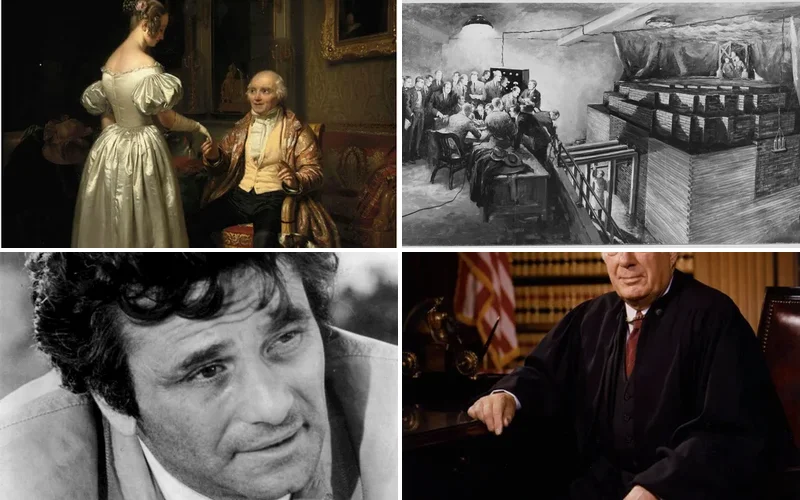
Politics and Government Events on June 23
1914 – Mexican Revolution: Pancho Villa Takes Zacatecas
Revolutionary leader Pancho Villa launched his decisive assault on the strategic city of Zacatecas, wresting control from the forces of dictator Victoriano Huerta. The battle marked a crucial turning point in the Mexican Revolution’s complex political landscape.
Villa’s victory demonstrated the growing power of revolutionary forces against the established government. The capture of Zacatecas opened vital supply routes and strengthened Villa’s position among Mexico’s competing revolutionary factions.
1941 – Lithuania Declares Independence from Soviet Union
The Lithuanian Activist Front boldly proclaimed independence from Soviet occupation, establishing the Provisional Government of Lithuania in defiance of Stalin’s control. This courageous act of resistance demonstrated the Baltic nation’s unwavering desire for freedom.
The provisional government’s tenure proved tragically brief, lasting only weeks before Nazi forces swept through the region. Despite its short existence, the declaration symbolized Lithuania’s enduring struggle for national sovereignty.
1947 – US Senate Overrides Truman’s Veto of Taft-Hartley Act
The United States Senate joined the House of Representatives in delivering a stinging rebuke to President Harry S. Truman by overriding his veto of the controversial Taft-Hartley Act. This landmark labor legislation fundamentally altered the relationship between unions and management.
The override demonstrated the growing conservative coalition’s power in post-war America. The act’s passage restricted union activities and shifted the balance of power in American labor relations for decades to come.
1967 – Johnson Meets Soviet Premier at Glassboro Summit
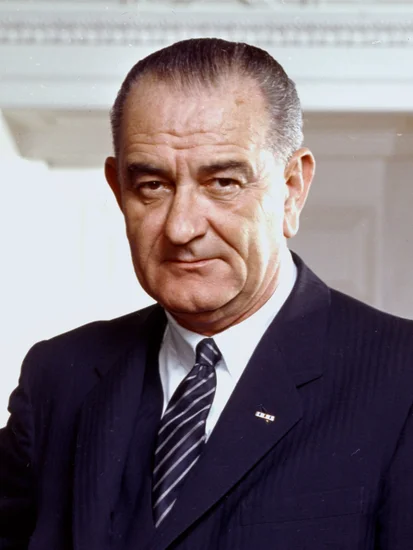
President Lyndon B. Johnson engaged in crucial Cold War diplomacy by meeting with Soviet Premier Alexei Kosygin at the historic Glassboro Summit Conference in New Jersey. The three-day summit represented a rare moment of direct superpower dialogue during the height of global tensions.
The conference addressed nuclear proliferation, the Vietnam War, and Middle Eastern conflicts. While achieving limited concrete results, the summit demonstrated both leaders’ commitment to preventing nuclear catastrophe through diplomatic engagement.
1969 – Warren Burger Sworn in as Chief Justice

Warren E. Burger took the oath as Chief Justice of the United States Supreme Court, administered by retiring Chief Justice Earl Warren in a symbolic transition of judicial leadership. The ceremony marked the beginning of the Burger Court era.
President Nixon’s appointment of Burger signaled a shift toward conservative judicial philosophy after the liberal activism of the Warren Court. Burger would lead the Court through landmark cases involving civil rights, criminal justice, and executive power.
2016 – United Kingdom Votes to Leave European Union
British voters delivered a shocking result in the Brexit referendum, choosing to leave the European Union by a narrow margin of 52% to 48%. The historic decision sent shockwaves through global financial markets and political establishments.
The vote represented a seismic shift in European politics and challenged decades of increasing integration. Brexit’s aftermath would reshape British politics, trigger economic uncertainty, and influence nationalist movements across Europe.
Military and Naval History on June 23
1913 – Greeks Defeat Bulgarians at Battle of Doiran
Greek forces achieved a decisive victory over Bulgarian troops at the Battle of Doiran during the Second Balkan War. The engagement demonstrated Greece’s growing military capabilities and strategic importance in the volatile Balkans region.
The battle’s outcome significantly influenced the territorial arrangements that would emerge from the Balkan conflicts. Greek success at Doiran helped secure important territorial gains and strengthened their position in subsequent peace negotiations.
1919 – Estonian Victory at Battle of Cēsis
Estonian forces delivered a crushing defeat to the Baltische Landeswehr at the Battle of Cēsis, marking a decisive moment in the Estonian War of Independence. This victory secured Estonian sovereignty and is still celebrated as Victory Day.
The battle’s outcome eliminated the German threat to Estonian independence and consolidated the young nation’s territorial integrity. Estonian military success at Cēsis proved crucial in gaining international recognition for their independence.
1940 – First Successful West-to-East Northwest Passage Navigation
Henry Larsen embarked on the first successful west-to-east navigation of the Northwest Passage, departing from Vancouver, British Columbia. This historic voyage demonstrated Canadian sovereignty over Arctic waters and advanced polar navigation techniques.
The expedition proved that the legendary Arctic route could be traversed in the opposite direction from previous attempts. Larsen’s achievement strengthened Canada’s territorial claims in the Arctic and contributed valuable scientific knowledge about polar navigation.
1942 – German Fighter Aircraft Captured Intact
Germany’s advanced Focke-Wulf Fw 190 fighter aircraft made a critical navigational error, landing intact at RAF Pembrey in Wales instead of its intended destination. This intelligence windfall provided Allied forces with invaluable insights into German aviation technology.
The captured aircraft revealed advanced German engineering techniques and tactical capabilities previously unknown to Allied intelligence. British engineers conducted extensive testing that informed the development of counter-tactics and improved Allied fighter design.
1985 – Terrorist Attacks at Narita Airport and Air India Flight 182

Coordinated terrorist attacks struck within an hour of each other, beginning with a bomb explosion at Narita International Airport near Tokyo that killed two people. The same terrorist group then detonated a second bomb aboard Air India Flight 182 over the Atlantic.
The downing of the Boeing 747 off the coast of Ireland resulted in the deaths of all 329 people aboard, making it one of aviation’s deadliest terrorist attacks. These coordinated strikes demonstrated the growing threat of international terrorism to civilian aviation.
Science and Discovery Milestones on June 23
1931 – Wiley Post and Harold Gatty Begin World Circumnavigation Attempt
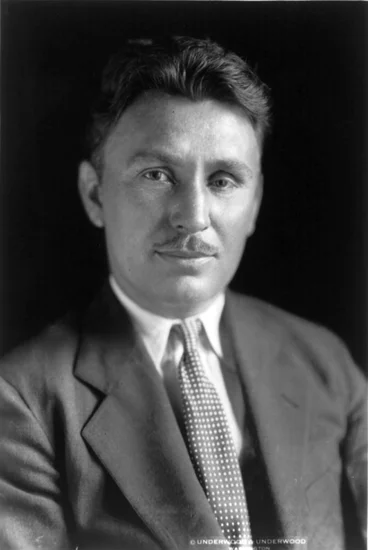
Aviation pioneers Wiley Post and Harold Gatty launched their ambitious attempt to circumnavigate the globe in a single-engine aircraft from Roosevelt Field, Long Island. Their daring flight pushed the boundaries of aviation technology and human endurance.
The expedition aimed to demonstrate the reliability of modern aircraft for long-distance travel and establish new aviation records. Their successful completion of the journey would prove instrumental in advancing commercial aviation and inspiring future aerospace achievements.
1959 – Klaus Fuchs Released from Prison
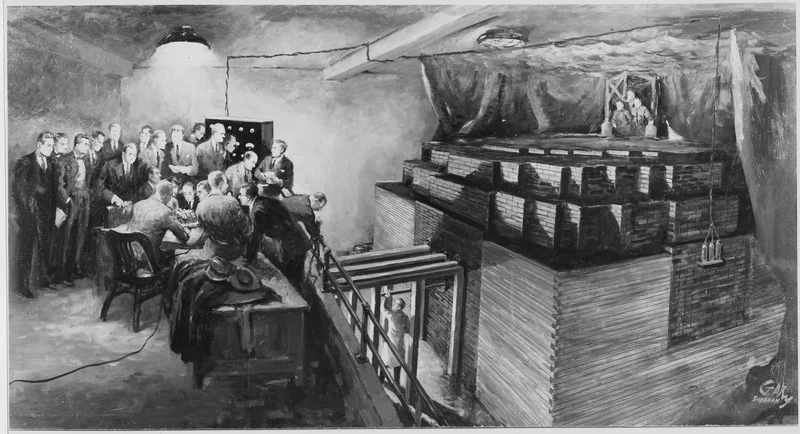
Convicted Manhattan Project spy Klaus Fuchs gained release after serving only nine years for passing atomic secrets to the Soviet Union. The German-born physicist immediately emigrated to East Germany where he resumed his scientific career.
Fuchs’s early release sparked controversy given the magnitude of his atomic espionage during World War II. His return to scientific work in Dresden contributed to East German nuclear research programs during the Cold War era.
1969 – IBM Announces Separate Software and Hardware Pricing
IBM made a revolutionary announcement that would fundamentally transform the computer industry by declaring its intention to price software and services separately from hardware beginning in January 1970. This decision created the foundation for the modern software industry.
The unbundling of software from hardware opened new markets for independent software developers and service providers. This landmark decision catalyzed the growth of companies like Microsoft and established software as a distinct commercial sector.
1994 – NASA Opens Space Station Processing Facility
NASA officially opened its state-of-the-art Space Station Processing Facility at Kennedy Space Center, a cutting-edge manufacturing facility designed specifically for International Space Station components. The facility represented a new era in space manufacturing capabilities.
The advanced facility incorporated revolutionary clean room technology and precision assembly equipment for space station modules. This investment in infrastructure proved crucial for the successful construction and maintenance of the International Space Station.
Cultural and Arts Events on June 23
1938 – Adolf Hitler Tours Paris Architecture
Adolf Hitler embarked on his only visit to Paris, conducting a three-hour architectural tour of the conquered city accompanied by architect Albert Speer and sculptor Arno Breker. The tour revealed Hitler’s obsession with monumental architecture and his vision for Nazi urban planning.
The dictator’s brief visit through the deserted streets of occupied Paris demonstrated his megalomaniacal ambitions for reshaping European cities. His architectural discussions with Speer during this tour would influence grandiose plans for rebuilding Berlin and other German cities.
1991 – Sonic the Hedgehog Released in North America

Sega Genesis welcomed its new mascot as Sonic the Hedgehog made his North American debut, launching one of gaming’s most iconic franchises. The blue hedgehog’s lightning-fast gameplay revolutionized platform gaming and challenged Nintendo’s dominance.
Sonic’s distinctive attitude and speed-based gameplay mechanics captured the imagination of a generation of gamers. The character’s success established Sega as a major competitor in the console wars and influenced video game character design for decades.
2013 – Nik Wallenda Walks Across Grand Canyon

Daredevil Nik Wallenda became the first person to successfully walk across the Grand Canyon on a tightrope, completing the death-defying feat without a safety net. The spectacular stunt was broadcast live to millions of viewers worldwide.
Wallenda’s 1,400-foot journey across the canyon showcased extraordinary skill and courage while honoring his family’s circus tradition. The achievement pushed the boundaries of human performance and demonstrated the enduring appeal of death-defying spectacles.
Religious and Social Events on June 23
1925 – Shameen Incident: Colonial Forces Fire on Chinese Protesters
British Army and French Army soldiers stationed in the Shameen concession opened fire on Chinese protesters, resulting in at least 52 deaths in a tragic display of colonial violence. The incident sparked outrage across China and intensified anti-foreign sentiment.
The massacre galvanized Chinese nationalist movements and contributed to growing resistance against foreign colonial presence. The Shameen Incident became a rallying cry for Chinese independence and influenced the country’s eventual rejection of foreign concessions.
1972 – Title IX Prohibits Educational Sex Discrimination
The United States Civil Rights Act of 1964 received a groundbreaking amendment through Title IX, prohibiting sexual discrimination in any educational program receiving federal funding. This legislation revolutionized opportunities for women in American education and athletics.
Title IX’s passage opened previously closed doors for women in higher education, professional schools, and competitive sports. The law’s impact extended far beyond athletics, transforming gender equality in American academic institutions and career opportunities.
1985 – International Widows Day Established
The international community recognized the unique challenges faced by widows worldwide by establishing International Widows Day. This observance highlighted the social and economic discrimination often experienced by widowed women across different cultures.
The day’s establishment brought global attention to issues of inheritance rights, social ostracism, and economic vulnerability affecting millions of widows. International organizations used this platform to advocate for policy changes and support programs worldwide.
Business and Economic Events on June 23
1960 – FDA Approves First Oral Contraceptive Pill
The United States Food and Drug Administration made history by declaring Enovid the world’s first officially approved combined oral contraceptive pill. This groundbreaking approval revolutionized reproductive health and women’s autonomy over family planning decisions.
The pill’s approval sparked a social revolution that transformed women’s roles in society, careers, and relationships. This pharmaceutical breakthrough enabled women to plan their families more effectively and pursue educational and professional opportunities previously limited by unplanned pregnancies.
2005 – Reddit Founded in Massachusetts
Steve Huffman and Alexis Ohanian launched Reddit, an American social news and discussion website, from their base in Medford, Massachusetts. The platform’s innovative voting system and community-driven content would revolutionize online discourse and information sharing.
Reddit’s unique approach to content curation through user voting created a new model for social media engagement. The platform’s growth from a small startup to a major internet destination demonstrated the power of community-driven content in the digital age.
2014 – Syria Ships Out Last Declared Chemical Weapons
The final shipment of Syria’s declared chemical weapons departed the war-torn country for destruction, marking the completion of an unprecedented international disarmament effort. The operation demonstrated global cooperation in eliminating weapons of mass destruction during active conflict.
The successful removal operation involved multiple nations and international organizations working under dangerous conditions. This achievement represented a rare moment of international unity in addressing chemical weapons threats during Syria’s ongoing civil war.
Transportation and Infrastructure on June 23
1938 – Civil Aeronautics Act Signed into Law
President Franklin D. Roosevelt signed the Civil Aeronautics Act into law, establishing the Civil Aeronautics Authority to regulate the rapidly growing American aviation industry. This legislation created the regulatory framework that would govern commercial aviation for decades.
The act standardized safety procedures, regulated airline routes, and established federal oversight of commercial aviation operations. These regulatory foundations proved crucial for the safe expansion of commercial air travel and the development of the modern airline industry.
1951 – Ocean Liner SS United States Christened
The magnificent ocean liner SS United States was christened and launched, representing the pinnacle of American maritime engineering and luxury passenger service. The vessel embodied American technological prowess and competitive spirit in transatlantic travel.
The ship’s advanced design incorporated revolutionary safety features and propulsion systems that would set new standards for ocean travel. SS United States would go on to capture the Blue Riband for the fastest Atlantic crossing, cementing America’s dominance in passenger shipping.
1940 – Henry Larsen Begins Northwest Passage Navigation
Royal Canadian Mounted Police officer Henry Larsen embarked on the first successful west-to-east navigation of the Northwest Passage aboard the St. Roch. This historic voyage demonstrated Canadian sovereignty over Arctic waters and advanced polar navigation techniques.
The expedition proved that the legendary Arctic route could be traversed in both directions, opening new possibilities for northern shipping routes. Larsen’s achievement strengthened Canada’s territorial claims in the Arctic and contributed valuable scientific knowledge about polar navigation.
Sports and Recreation on June 23
1917 – Ernie Shore’s Perfect Relief Performance
Boston Red Sox pitcher Ernie Shore achieved one of baseball’s most unusual perfect games after replacing an ejected Babe Ruth, retiring 26 consecutive Washington Senators batters. The remarkable performance came after Ruth had punched the umpire and been thrown out of the game.
Shore’s achievement remained unique in baseball history as the only perfect game thrown in relief. The performance demonstrated Shore’s exceptional composure under pressure and became part of baseball folklore alongside Ruth’s dramatic ejection.
1968 – Deadly Stampede at Buenos Aires Football Match
A tragic stampede at a football match between Boca Juniors and Club Atlético River Plate in Buenos Aires resulted in 74 deaths and 150 injuries. The disaster highlighted the dangerous overcrowding conditions at major sporting events.
The catastrophe led to significant improvements in stadium safety regulations and crowd control measures throughout Argentina. The tragedy remains one of the deadliest stadium disasters in football history and sparked international discussions about sports venue safety.
2012 – Ashton Eaton Breaks Decathlon World Record

American athlete Ashton Eaton shattered the decathlon world record at the United States Olympic Trials, demonstrating extraordinary versatility across ten demanding track and field events. His performance established new standards for multi-event excellence.
Eaton’s record-breaking achievement showcased the pinnacle of athletic versatility and training dedication. The performance positioned him as a favorite for the upcoming Olympic Games and inspired a new generation of decathletes.
Notable Births on June 23
1912 – Alan Turing, English Mathematician and Computer Scientist
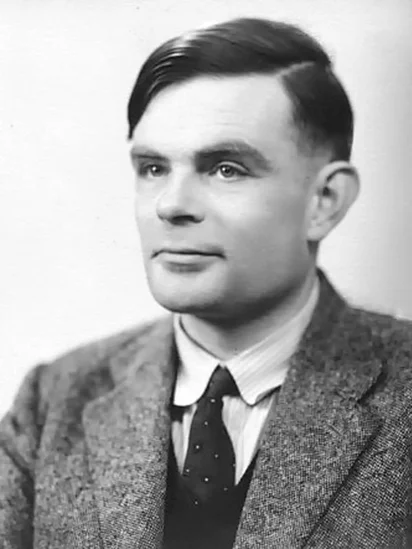
Alan Turing entered the world in London, destined to become one of the most influential minds in mathematics and computer science. His childhood fascination with mathematical puzzles and logical problems foreshadowed his revolutionary contributions to computing.
Turing’s groundbreaking work on computational theory and artificial intelligence laid the foundation for the modern computer age. His tragic death in 1954 cut short a brilliant career that had already transformed cryptography, mathematics, and our understanding of machine intelligence.
1927 – Bob Fosse, American Choreographer and Director

Bob Fosse was born in Chicago, Illinois, beginning a life that would revolutionize American dance and theater. His early exposure to vaudeville and jazz dance shaped his distinctive choreographic style that would captivate Broadway audiences.
Fosse’s innovative choreography combined sensuality with technical precision, creating a signature style that influenced generations of dancers. His work in productions like “Chicago” and “Cabaret” established him as one of America’s most celebrated choreographers and directors.
1929 – June Carter Cash, American Singer-Songwriter

June Carter Cash was born into the legendary Carter Family, America’s first family of country music. Her musical upbringing in the heart of Appalachian folk tradition shaped her distinctive voice and songwriting abilities.
Carter Cash’s collaboration with Johnny Cash created some of country music’s most enduring love songs and performances. Her contributions to “Ring of Fire” and other classics helped define the sound of American country music for generations.
1940 – Wilma Rudolph, American Sprinter
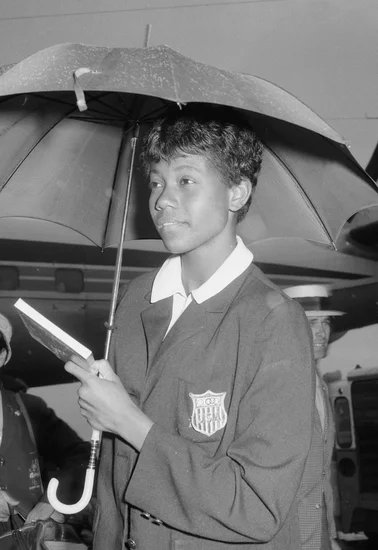
Wilma Rudolph was born in Tennessee, overcoming childhood polio to become one of America’s greatest Olympic athletes. Her early struggles with physical disabilities made her later athletic achievements all the more remarkable.
Rudolph’s three gold medals at the 1960 Rome Olympics shattered barriers for African American women in sports. Her grace and speed on the track inspired millions and helped break down racial barriers in American athletics.
1948 – Clarence Thomas, American Supreme Court Justice

Clarence Thomas was born in rural Georgia, beginning a journey that would lead him to the highest court in the United States. His childhood experiences with poverty and segregation shaped his conservative judicial philosophy.
Thomas’s appointment to the Supreme Court in 1991 sparked intense national debate and controversy. His decades-long tenure on the Court has influenced landmark decisions on civil rights, criminal justice, and constitutional interpretation.
1972 – Zinedine Zidane, French Footballer

Zinedine Zidane was born in Marseille to Algerian immigrant parents, beginning a football career that would captivate the world. His early development in French youth academies showcased exceptional technical skill and field vision.
Zidane’s elegant playing style and crucial goals in World Cup and European Championship finals made him a global icon. His transition from player to successful manager with Real Madrid demonstrated his deep understanding of football tactics and leadership.
Notable Deaths on June 23
1995 – Jonas Salk, American Biologist and Physician
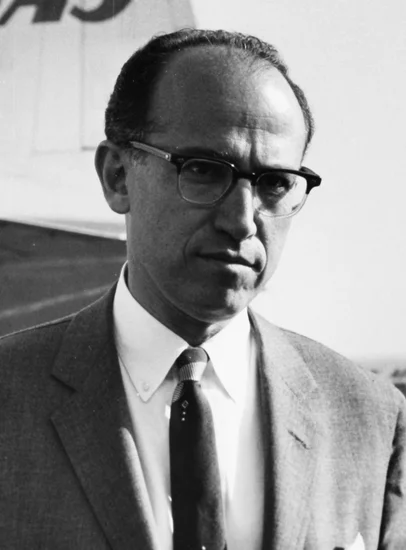
Jonas Salk passed away at age 80, leaving behind a legacy that saved millions of lives through his development of the polio vaccine. His refusal to patent the vaccine demonstrated remarkable humanitarian commitment to public health.
Salk’s groundbreaking research eliminated one of childhood’s most feared diseases and established new standards for vaccine development. His death marked the end of an era in medical research and public health advocacy.
1997 – Betty Shabazz, American Educator and Activist

Betty Shabazz died from severe burns suffered in a tragic fire, ending a life dedicated to civil rights and education. Her strength following Malcolm X’s assassination and her subsequent advocacy work inspired generations of activists.
Shabazz’s commitment to education and community development continued her late husband’s legacy while establishing her own identity as a leader. Her death represented a significant loss to the civil rights movement and educational advocacy.
2006 – Aaron Spelling, American Television Producer
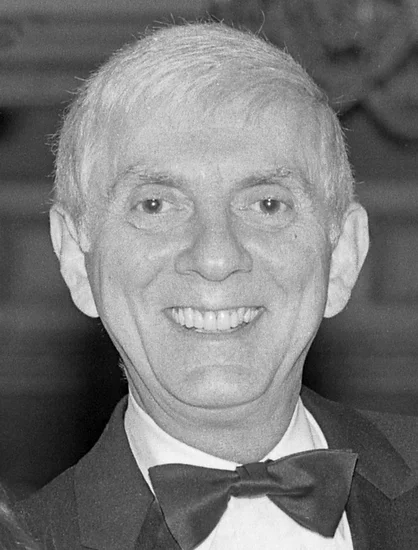
Aaron Spelling died at age 83, concluding a television career that produced more prime-time programming than any other individual in history. His shows dominated American television for decades and shaped popular culture.
Spelling’s productions from “Charlie’s Angels” to “Beverly Hills, 90210” defined television entertainment across multiple generations. His death marked the end of an era in television production and popular entertainment.
2011 – Peter Falk, American Actor
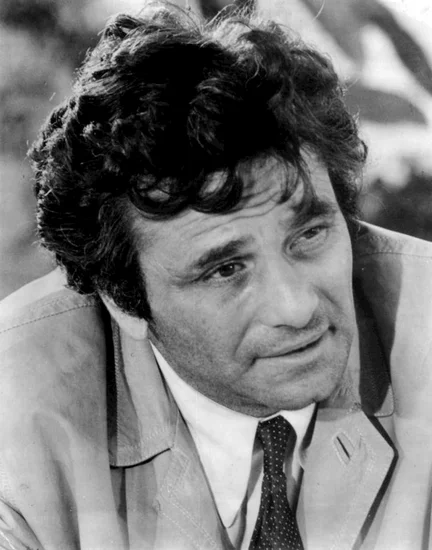
Peter Falk died at age 83, best remembered for his iconic portrayal of the seemingly bumbling detective Columbo. His distinctive performance style and memorable catchphrases made him one of television’s most beloved characters.
Falk’s career spanned theater, film, and television, earning him multiple Emmy Awards and Oscar nominations. His death represented the loss of a uniquely talented performer who brought depth and humor to every role.
2021 – John McAfee, Computer Programmer and Businessman

John McAfee died in a Spanish prison cell while awaiting extradition to the United States on tax evasion charges. His death ended a controversial life that transformed computer security and personal privacy protection.
McAfee’s antivirus software revolutionized computer security and protected millions of users from malicious threats. His later years were marked by legal troubles and erratic behavior that overshadowed his technological contributions.
Holidays and Observances on June 23
Father’s Day in Nicaragua and Poland

Nicaragua and Poland celebrate Father’s Day, honoring paternal figures and their contributions to family life. These celebrations strengthen family bonds and recognize the important role fathers play in child development.
Both countries organize special events and family gatherings to express gratitude to fathers and father figures. The observance promotes family values and provides opportunities for intergenerational connection and appreciation.
International Women in Engineering Day
The global community celebrates International Women in Engineering Day, highlighting the achievements of women in engineering fields and encouraging greater female participation in STEM careers. This observance addresses gender disparities in technical professions.
Engineering organizations worldwide use this day to showcase female role models and promote educational opportunities for girls. The celebration aims to inspire the next generation of women engineers and acknowledge their vital contributions to technological advancement.
Saint John’s Eve and Midsummer Celebrations
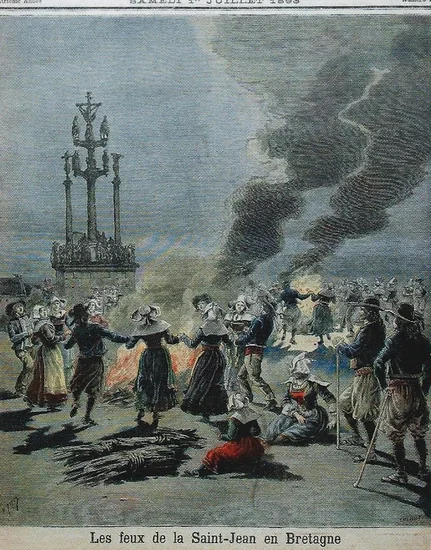
Saint John’s Eve marks the beginning of traditional Midsummer celebrations across Europe, featuring bonfires, folk music, and ancient rituals celebrating the summer solstice. These festivities connect modern communities with centuries-old cultural traditions.
The celebrations vary across different European countries but share common themes of light, renewal, and community gathering. These traditions preserve cultural heritage while providing opportunities for social bonding and cultural expression.
Victory Day in Estonia
Estonia commemorates Victory Day, celebrating the decisive defeat of the Baltische Landeswehr at the Battle of Cēsis in 1919. This national holiday honors Estonian independence and military valor during the War of Independence.
The observance includes military parades, wreath-laying ceremonies, and cultural events celebrating Estonian sovereignty. Victory Day reinforces national identity and remembers the sacrifice of those who fought for Estonian freedom.
